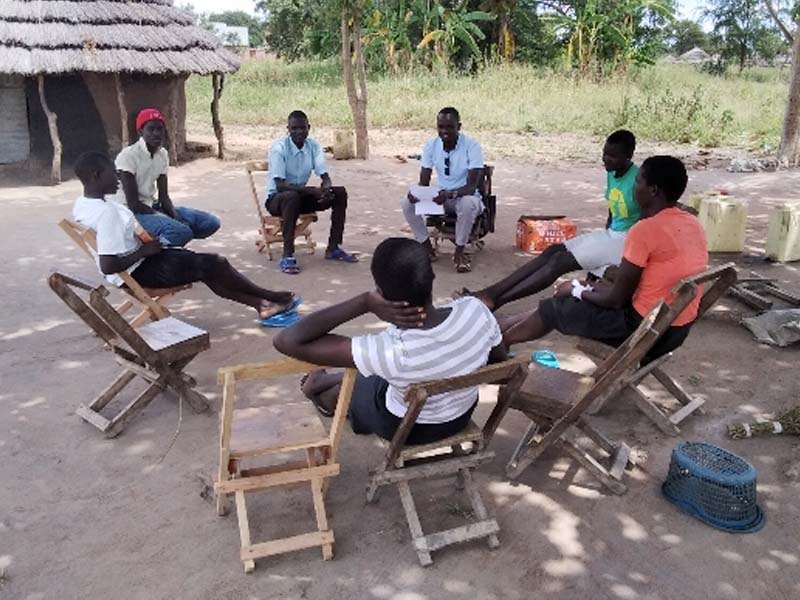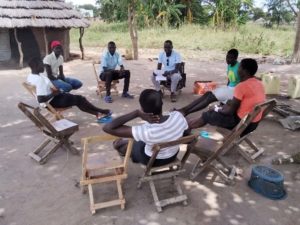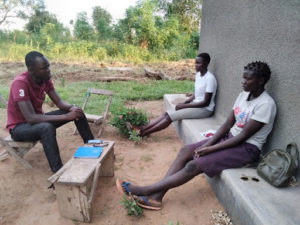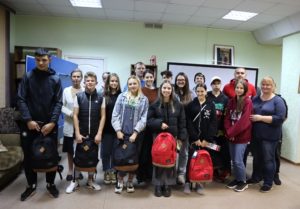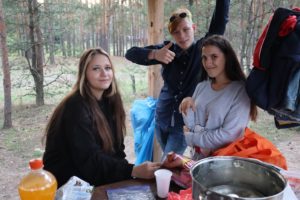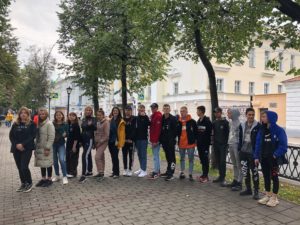We all want to be healthy – in mind, soul, and body. The World Health Organization (WHO) defines mental health as, “a state of well-being in which the individual is aware of their own abilities, can cope with normal stresses of life, can work productively and fruitfully and is capable of making a contribution to their community.” To empower communities to develop and transform, it is important to not only empower people economically, but also psychologically and spiritually. We cannot improve economics in a community without dealing with mental health issues that have occurred in the past, especially in impoverished, underdeveloped communities.
Living under constant fear or threat can cause serious health issues. Many of the orphaned and vulnerable children living in the countries in which Greater Calling works are exposed to traumatic circumstances which can cause them lifelong challenges. “Poverty, neglect, housing instability, violence, food insecurity and separation from parents all affect childhood development- and thus, lifelong health,” says a Forbes article on childhood trauma. Children are less likely to be successful as adults when they have so many barriers in their way. Interrupting this cycle and allowing children to grow up healthy not just in body, but in mind as well, supports their ability to climb other barriers in the future. We want to share some of the stories and positive impact that has occurred as a result of the support we offer.
Ethiopia
Since November 2020, Ethiopia has been engaged in a civil war. While the fighting is mostly contained to the Tigray region, many are affected by the conflict and the fallout. To date, there have been thousands of deaths, and 1.7 million people have been displaced. Many existing systemic problems that Ethiopia dealt with worsened due to the conflict. Developing nations often face these kinds of extreme, disruptive events that other countries do not, and often that sets their development back even more.
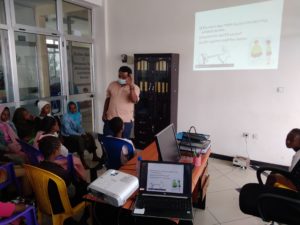
At the Shashemene Wondo Ber CarePoint, staff hosted a two-day trauma management course for guardians of CarePoint children. The program focuses on emotional support for past traumatic occurrences. The goal of the training was to create awareness about trauma, identifying and treating trauma, and healing from trauma’s other effects. The guardians even spoke of the benefits of the class to themselves while processing their own histories.
The staff from Shashemene Wondo Ber CarePoint traveled to nearby CarePoints to conduct the same course for staff and guardians who work with these vulnerable and exposed children. The impact continues to multiply and deepen, giving way to immeasurable hope and life to the futures of communities often immobilized by grief.
Uganda
In Uganda, 41% of people live in poverty, and almost half of Uganda’s population is under the age of 15. Many of the issues already faced pre-pandemic became exacerbated and have not improved yet. At many Ugandan CarePoints, staff have carried out counseling sessions with teenagers to discuss the challenges they were experiencing. They also coached them on how to manage adolescence and peer pressure amid the restrictions. They specifically hoped to target some of the older children, due to the high rates of teenage pregnancy in the community, interrupting their health, their education and their income generating activities.
Staff also organized a community visit to a nearby village, where an 84-year-old woman had been struggling after the death of her grandson. Grief can often be paralyzing, and many don’t take care of themselves when they are overwhelmed. Three CarePoint children accompanied staff to the woman’s house. The staff were able to provide her with grief counseling while the children cleaned her house and fetched water. Sometimes, simple acts of kindness mean everything to someone who is going through a difficult time. This woman was able to get support from her community to work through her loss, with Greater Calling’s help.
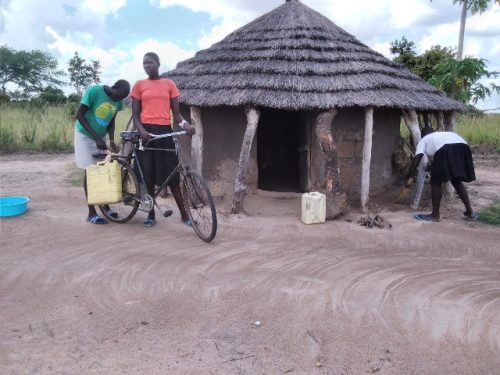
Guatemala
Ava* is the oldest daughter in her family. Just before the pandemic began, Ava’s father and grandfather passed away within a month of each other. It was a very heavy loss for their family. When something is lost, by virtue, it is not just a feeling but it is originally a newfound reality which causes us to react. Losing something or someone is an undeniable truth that can debilitate us. Halfway through a difficult school year for Ava, her mother needed her help with the family business. Overwhelmed by grief and change, Ava couldn’t even carry out her daily tasks of carrying the rellenitos, a dish of plantains and beans, without dropping them and costing the family.
Through support at the Puerta de Esperanza CarePoint, Ava and her family were able to understand and process her grief, helping her to grow and flourish in her work and school life once again. She is now in a healthy place and dreams of becoming a doctor.
*Child’s name has been changed in accordance with Greater Calling Child Protection Policy and standards.

Russia
The Vladimir CarePoint in Russia, with the support of Greater Calling, hosted an orientation camp for the graduates of several orphanages. These graduates were moving to the city of Vladimir to attend Tech schools. Many of these young adults had never been far outside their rural towns, let alone to a large city. Change can be an intimidating, scary prospect, especially when someone is leaving behind everything they’ve ever known.
Milana* is a recent graduate from the Lukhtonovo Orphanage and was one of ten first-year students who attended the orientation camp. “I was so scared to graduate and leave my orphanage,” Milana said. “I even cried when I was saying goodbye to my friends at school.”
*Child’s name has been changed in accordance with Greater Calling Child Protection Policy and standards.
These young adults also don’t have the support systems that other children leaving home for the first time do. They have no family to drop them off at their school or help them explore their new home. It makes the process of leaving their orphanage, the only support system they’ve ever had, that much more intimidating.
A full time psychologist supports young adults in these transitions. Equipping young men and women with tools not only to cope but to thrive into their next season of life. There is a sense of togetherness created where they no longer feel alone. By reducing stress and other effects of trauma, long-term physical health effects can be avoided early. Greater Calling’s resources are being used effectively in this way to support a holistic vision of emotional health and wellbeing for impoverished, underserved communities all over the world.

